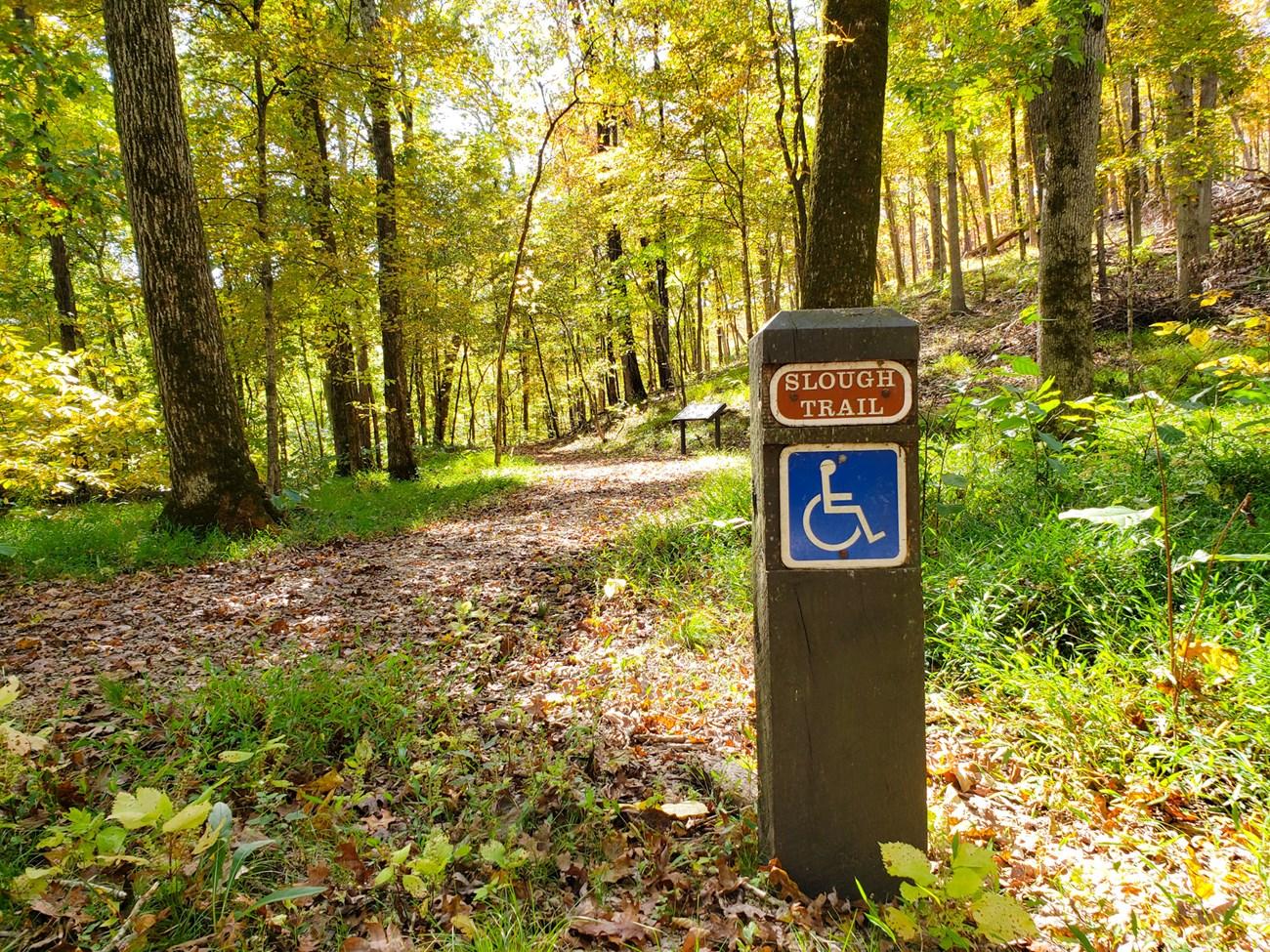
Shawnee National Forest: A Natural Wonderland in Illinois
Nestled in the southern tip of Illinois, Shawnee National Forest is a natural haven for outdoor enthusiasts. Spanning over 280,000 acres, this vast forest offers a diverse landscape that includes rolling hills, rugged bluffs, and lush woodlands. The forest is renowned for its unique geological formations, such as the Garden of the Gods, where towering rock structures provide breathtaking panoramic views of the surrounding wilderness. Shawnee National Forest is a paradise for hikers, with numerous trails ranging from easy walks to challenging treks. The River to River Trail, a 160-mile path, takes adventurers through some of the most scenic parts of the forest. For those who prefer water activities, the forest boasts several lakes and rivers perfect for kayaking, fishing, and swimming. Wildlife enthusiasts will also find plenty to admire, as the forest is home to a variety of species, including white-tailed deer, bald eagles, and bobcats. In addition to its natural beauty, Shawnee National Forest is rich in cultural history. Visitors can explore ancient Native American sites, historic homesteads, and remnants of early settlements. Seasonal events and festivals celebrate the area's heritage, offering a glimpse into the local traditions and customs. Whether you're seeking adventure, relaxation, or a bit of both, Shawnee National Forest provides an unforgettable escape into nature.
Local tips in Shawnee National Forest
- Visit Garden of the Gods early in the morning to avoid crowds and catch stunning sunrise views.
- Bring a map or download trail maps ahead of time as cell service can be spotty in many areas of the forest.
- Wear sturdy hiking boots, especially if you plan to explore the more rugged trails and rock formations.
- Check for any seasonal closures or restrictions before your visit, especially during hunting season.
- Pack plenty of water and snacks, as there are limited facilities within the forest.
Shawnee National Forest: A Natural Wonderland in Illinois
Nestled in the southern tip of Illinois, Shawnee National Forest is a natural haven for outdoor enthusiasts. Spanning over 280,000 acres, this vast forest offers a diverse landscape that includes rolling hills, rugged bluffs, and lush woodlands. The forest is renowned for its unique geological formations, such as the Garden of the Gods, where towering rock structures provide breathtaking panoramic views of the surrounding wilderness. Shawnee National Forest is a paradise for hikers, with numerous trails ranging from easy walks to challenging treks. The River to River Trail, a 160-mile path, takes adventurers through some of the most scenic parts of the forest. For those who prefer water activities, the forest boasts several lakes and rivers perfect for kayaking, fishing, and swimming. Wildlife enthusiasts will also find plenty to admire, as the forest is home to a variety of species, including white-tailed deer, bald eagles, and bobcats. In addition to its natural beauty, Shawnee National Forest is rich in cultural history. Visitors can explore ancient Native American sites, historic homesteads, and remnants of early settlements. Seasonal events and festivals celebrate the area's heritage, offering a glimpse into the local traditions and customs. Whether you're seeking adventure, relaxation, or a bit of both, Shawnee National Forest provides an unforgettable escape into nature.
When is the best time to go to Shawnee National Forest?
Unmissable attractions to see
Garden of the Gods
Explore the breathtaking rock formations and stunning vistas at the Garden of the Gods, a must-visit natural wonder in southern Illinois.
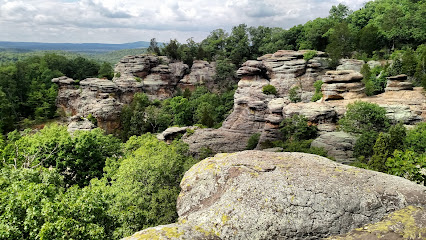
Giant City State Park
Discover the breathtaking beauty of Giant City State Park, a haven for outdoor adventure and serene natural landscapes in Illinois.
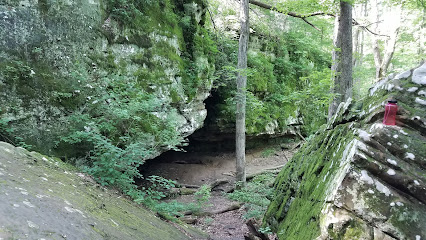
Cave-In-Rock State Park
Explore the captivating landscapes and rich history of Cave-In-Rock State Park, a must-visit destination for nature lovers and adventure seekers in Illinois.
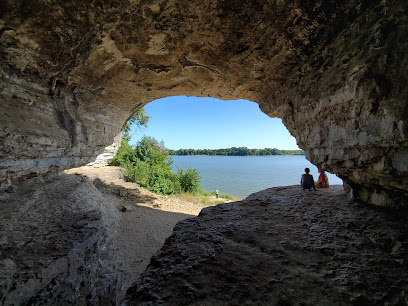
Bell Smith Springs Scenic Area
Discover the breathtaking landscapes and unique geological formations of Bell Smith Springs Scenic Area in Ozark, Illinois, a hidden gem for nature lovers.
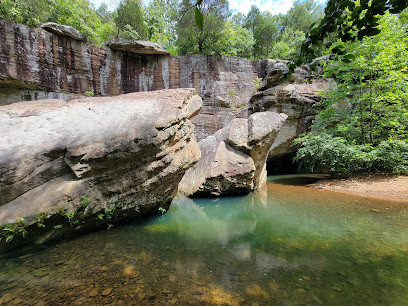
Ferne Clyffe Waterfall Trail
Experience the breathtaking beauty of Ferne Clyffe Waterfall Trail, a hiking paradise in Goreville, Illinois, perfect for nature lovers and adventurers alike.
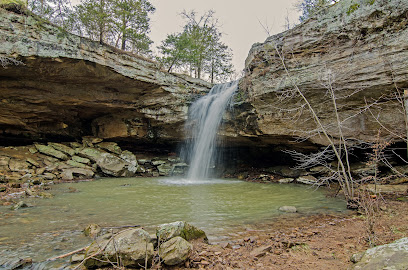
Jackson Falls
Experience the stunning waterfalls and scenic trails of Jackson Falls, a hiking paradise in Illinois' Shawnee National Forest.
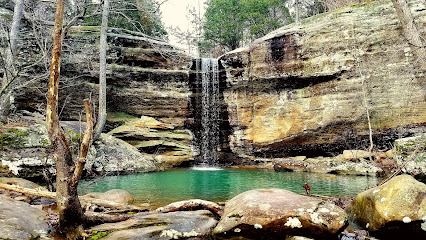
Giant City Nature Trail
Explore the breathtaking landscapes and rich biodiversity of Giant City Nature Trail in Cobden, Illinois – a paradise for hikers and nature lovers.
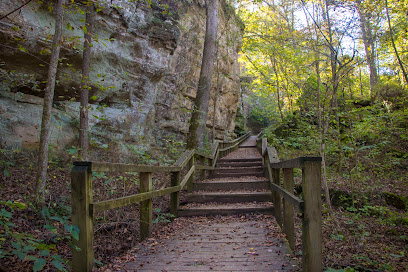
Illinois Iron Furnace (National Historic Site)
Explore the Illinois Iron Furnace, a National Historic Site nestled in Shawnee National Forest, showcasing rich industrial heritage and stunning landscapes.
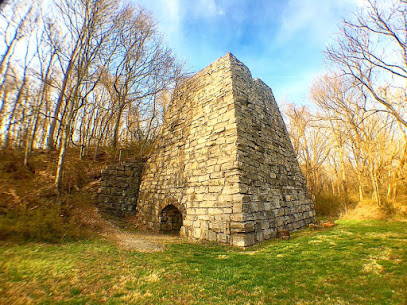
Dixon Springs State Park
Experience the serene beauty of Dixon Springs State Park, a hidden gem in Illinois offering stunning landscapes and outdoor adventures.
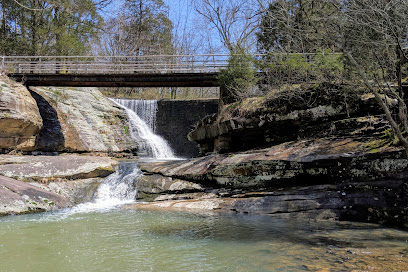
Shawnee Bluffs Canopy Tour
Discover adventure at Shawnee Bluffs Canopy Tour, where zip-lining through the breathtaking landscapes of Illinois creates unforgettable memories.
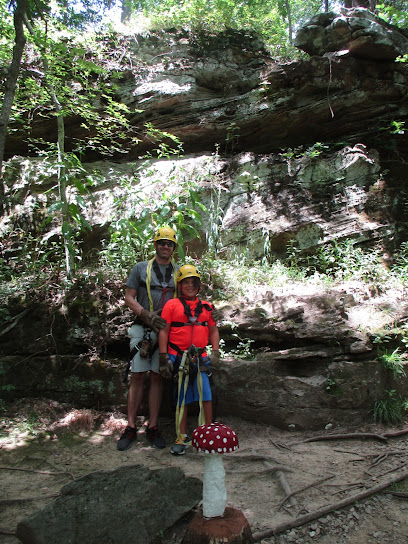
Mandala Gardens
Discover the tranquil beauty and artistic charm of Mandala Gardens, a serene escape in Marion, Illinois, perfect for nature lovers and art enthusiasts alike.
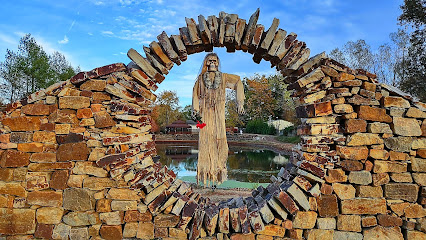
Trigg Observation Tower
Experience stunning panoramic views of Simpson, Illinois, at Trigg Observation Tower - a must-visit for nature lovers and adventure seekers.
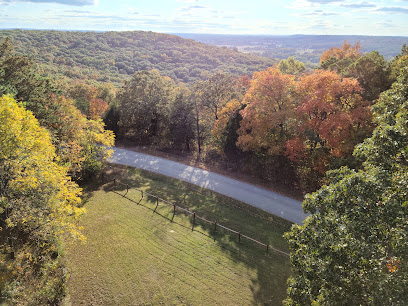
Stonefort Nature Trail
Discover the breathtaking landscapes and serene trails of Stonefort Nature Trail in Makanda, Illinois, perfect for hiking and nature lovers.
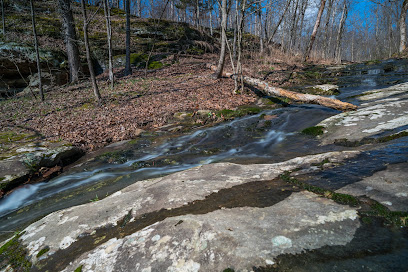
High Knob Lookout
Discover breathtaking views and serene hikes at High Knob Lookout in the enchanting Shawnee National Forest, a perfect escape for nature lovers and adventurers.
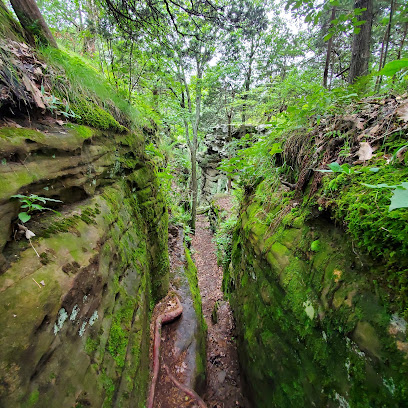
Bork Falls
Discover the tranquility of Bork Falls in Goreville, Illinois, where serene hiking trails and breathtaking waterfalls await nature enthusiasts.
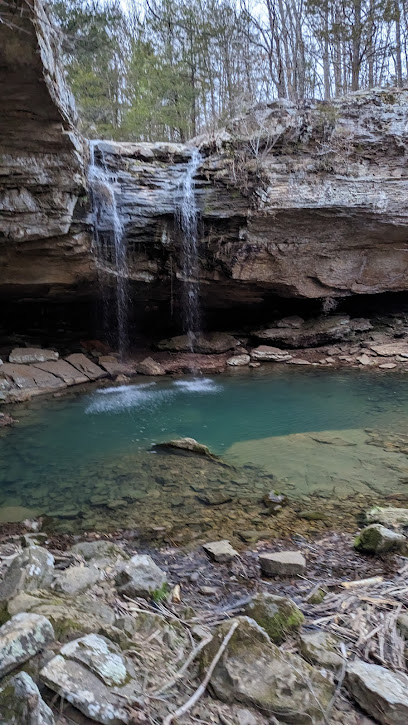
Essential places to dine
Shotgun Eddys
Discover the vibrant flavors of American cuisine at Shotgun Eddys, Eddyville's favorite grill known for hearty portions and friendly service.
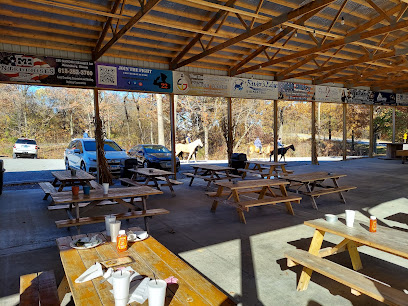
Big Blues Que
Experience the authentic taste of Southern-style barbecue at Big Blues Que in Creal Springs, where smoky flavors meet warm hospitality.
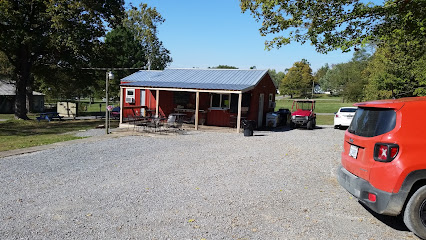
Markets, malls and hidden boutiques
Garden of the Gods
Explore the breathtaking Garden of the Gods, a premier hiking destination in Illinois, renowned for its stunning rock formations and scenic beauty.
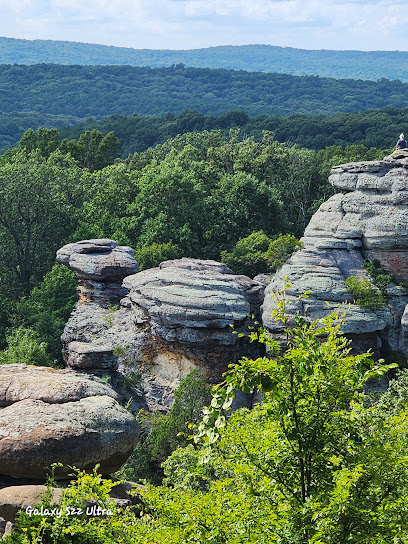
Garden of the Gods Outpost
Discover the enchanting Garden of the Gods Outpost, where stunning views, unique gifts, and delicious food create an unforgettable experience in Southern Illinois.

Bell Smith Springs Scenic Area
Experience the breathtaking landscapes and serene waters of Bell Smith Springs Scenic Area, a true natural oasis in Illinois perfect for outdoor adventures.
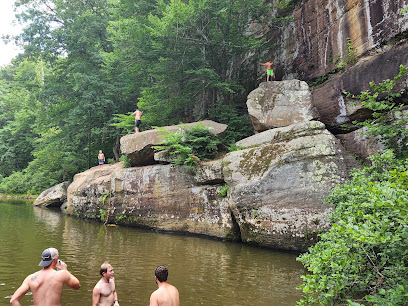
Jackson Falls
Explore the breathtaking hiking trails and picturesque waterfalls of Jackson Falls in Simpson, Illinois, a haven for outdoor enthusiasts.
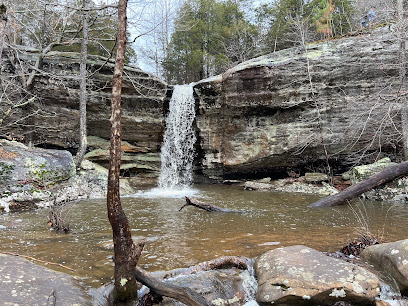
Target
Discover an unparalleled shopping experience at Target in Marion, Illinois, where you can find everything from fashion to home essentials all in one convenient location.

Chocolate Factory
Experience the magic of handcrafted chocolates at the Chocolate Factory in Golconda, Illinois - a sweet adventure awaits!

Grassy General Store
Experience local flavors and friendly service at Grassy General Store in Carbondale, Illinois—your perfect travel companion!

Renew Secondhand Store
Explore Renew Secondhand Store in Marion for sustainable shopping and unique finds in a charming thrift store atmosphere.

Makai Crystal Shop
Explore the enchanting Makai Crystal Shop in Energy, Illinois, where unique crystals and metaphysical supplies await your discovery.

Lion's Den
Explore Lion's Den in Marion, Illinois - the ultimate lingerie destination offering a chic and comfortable shopping experience for all.

The Oasis
Discover the finest selection of wines, beers, and spirits at The Oasis in Goreville, where every visit is a delightful experience.

Shawnee Trails Wilderness
Explore Shawnee Trails Wilderness: Your ultimate destination for outdoor gear, camping, and adventure in the heart of Illinois.

The FACTORY
Experience the charm of Harrisburg at The FACTORY, where local goods meet unique gifts in a welcoming atmosphere.

Perfectly Posh Boutique
Explore Perfectly Posh Boutique in Marion, Illinois, for unique fashion and home decor that captures the essence of individual style and charm.

Eccentrics Boutique
Explore Eccentrics Boutique for unique fashion accessories and women's clothing in Carterville, IL - a shopping gem for tourists seeking local treasures.

Essential bars & hidden hideouts
618 Tap House
Discover the delightful fusion of flavor and fun at 618 Tap House, Marion's favorite grill and bar destination for great food and drinks.

Pookie's Beer, Burgers & Bocce
Experience the perfect blend of delicious burgers, refreshing beers, and bocce fun at Pookie's Beer, Burgers & Bocce in Marion.

Shotgun Eddys
Discover the best grill experience at Shotgun Eddys in Eddyville, Illinois - a delightful spot for mouthwatering dishes and a warm atmosphere.
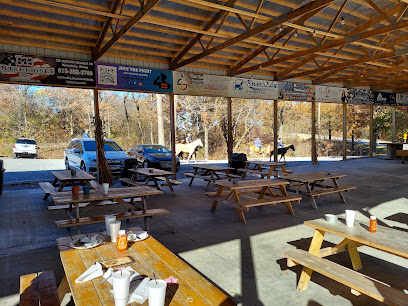
PK’s Bar
Experience the lively atmosphere and delicious grill options at PK’s Bar in Carbondale, Illinois, where great food meets affordable prices.

Diver Down
Discover the flavors of Golconda at Diver Down, a grill offering an unforgettable dining experience with fresh ingredients and a warm atmosphere.

Tasting Room at Walker's Bluff
Discover the beauty of local wines and delightful cuisine at the Tasting Room at Walker's Bluff, a vibrant wine bar and live music venue in Illinois.

John Brown's On the Square
Discover the heart of Marion at John Brown's On the Square, where live music meets great food in a vibrant bar setting.

Teddy's Sports Bar & Grill
Experience the vibrant atmosphere of Teddy's Sports Bar & Grill, where delicious food and refreshing drinks await in the heart of Herrin, IL.
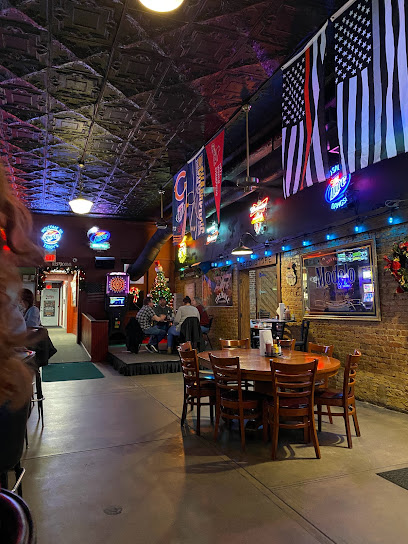
The Cellar
Experience the lively atmosphere and diverse drink offerings at The Cellar, Carbondale's favorite bar for relaxation and entertainment.

Just One More Bar & Grill
Discover Just One More Bar & Grill in Marion, Illinois – a lively bar offering delicious food, refreshing drinks, and a fun atmosphere for all ages.
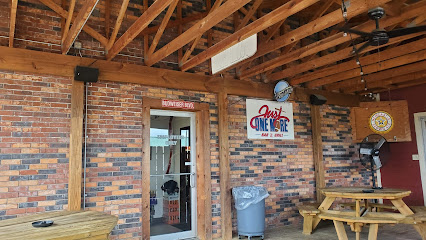
Mase's Place
Discover Mase's Place in Pomona, IL – where every grilled dish tells a story of local flavors and hospitality.
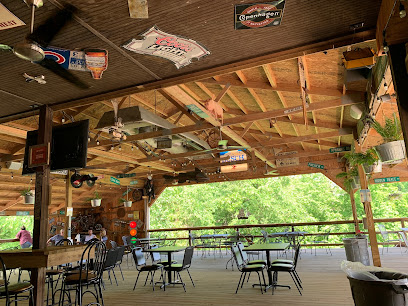
Gap Bar
Experience the authentic flavors of Illinois at Gap Bar, your friendly grill and bar in Herod, where every meal is a celebration of taste.

Key West Bar
Discover the lively ambiance, delicious dishes, and refreshing drinks at Key West Bar in Carbondale, Illinois, a must-visit for tourists.

Fuzzy's Tavern
Discover the perfect blend of relaxation and local flavor at Fuzzy's Tavern in Cobden, Illinois, a cozy bar with a welcoming atmosphere.

Local Phrases about Shawnee National Forest
-
- HelloNiitakat
[nee-ta-kat] - GoodbyeWapimini
[wa-pee-mi-nee] - YesEeyo
[ee-yo] - NoAahpeetokwa
[aah-pee-to-kwa] - Please/You're welcomeKwakwaho
[kwa-kwa-ho] - Thank youNinaskum
[nee-nas-kum] - Excuse me/SorryWapamini
[wa-pa-mi-nee] - How are you?Nahiyapo
[na-hi-ya-po] - Fine. And you?Heka. Niitako?
[he-ka. nee-ta-ko?] - Do you speak English?Aahpeetokwa kiilaweeman
[aah-pee-to-kwa kee-la-wee-man] - I don't understandAahpiilokwa
[aah-pee-lo-kwa]
- HelloNiitakat
-
- I'd like to see the menu, pleaseKiilaweeman eemilokwa
[kee-la-wee-man ee-mi-lo-kwa] - I don't eat meatAahpeetokwa wiiyekwaneeta
[aah-pee-to-kwa wee-ye-kwa-nee-ta] - Cheers!Awanowat
[a-wa-no-wat] - I would like to pay, pleaseKiilaweeman kwiilokwa
[kee-la-wee-man kwee-lo-kwa]
- I'd like to see the menu, pleaseKiilaweeman eemilokwa
-
- Help!Kohpomah
[koh-po-ma] - Go away!Tepahki
[te-pah-ki] - Call the Police!Kohpomah weloohkoohweeman
[koh-po-ma we-looh-koo-wee-man] - Call a doctor!Kohpomah weloohneehkohta
[koh-po-ma we-looh-nee-ko-ta] - I'm lostAahpeetokwa welohkwa
[aah-pee-to-kwa we-lo-kwa] - I'm illAahpeetokwa wiiwiiyepi
[aah-pee-to-kwa wee-wee-ye-pi]
- Help!Kohpomah
-
- I'd like to buy...Kiilaweeman kiiyekwaneeta
[kee-la-wee-man kee-ye-kwa-nee-ta] - I'm just lookingNiisheewat
[nee-shee-wat] - How much is it?Kwiiyekwaneeta kiilaweeman
[kwee-ye-kwa-nee-ta kee-la-wee-man] - That's too expensiveKwaiikweemihki
[kwa-ee-kwee-mi-hki] - Can you lower the price?Aahpeetokwa kiiweeman
[aah-pee-to-kwa kee-wee-man]
- I'd like to buy...Kiilaweeman kiiyekwaneeta
-
- What time is it?Kwiilohkwa oohkiimihki?
[kwee-lo-kwa ooh-kee-mi-hki] - It's one o'clockOohkiimihki eeyo
[ooh-kee-mi-hki ee-yo] - Half past (10)Wiiyekwaneeta niilomah
[wee-ye-kwa-nee-ta nee-lo-ma] - MorningOohkiimihki
[ooh-kee-mi-hki] - AfternoonOohkiimihki
[ooh-kee-mi-hki] - EveningOohkiimihki
[ooh-kee-mi-hki] - YesterdayKiiyekwaneeta niilohtasihki
[kee-ye-kwa-nee-ta nee-lo-ta-si-hki] - TodayKiiyekwaneeta niilohpokwa
[kee-ye-kwa-nee-ta nee-lo-po-kwa] - TomorrowKiiyekwaneeta niilohki
[kee-ye-kwa-nee-ta nee-lo-ki] - 1Niilomah
[nee-lo-ma] - 2Niilomahpi
[nee-lo-ma-pee] - 3Niilomahpiyokwa
[nee-lo-ma-pee-yo-kwa] - 4Niilomahpeetokwa
[nee-lo-ma-pee-to-kwa] - 5Niilomahweeman
[nee-lo-ma-wee-man] - 6Niilomahkweemihki
[nee-lo-ma-kwee-mi-hki] - 7Niilomahkweemihkiyokwa
[nee-lo-ma-kwee-mi-hki-yo-kwa] - 8Niilomahkweemihkiyoweman
[nee-lo-ma-kwee-mi-hki-yo-wee-man] - 9Niilomahkweemihkiyowemanyokwa
[nee-lo-ma-kwee-mi-hki-yo-wee-man-yo-kwa] - 10Niilomahkweemihkiyowemanpi
[nee-lo-ma-kwee-mi-hki-yo-wee-man-pee]
- What time is it?Kwiilohkwa oohkiimihki?
-
- Where's a/the...?Kwiiyekwaneeta...
[kwee-ye-kwa-nee-ta] - What's the address?Kwiiyekwaneeta niitako...
[kwee-ye-kwa-nee-ta nee-ta-ko] - Can you show me (on the map)?Aahpeetokwa niitako...
[aah-pee-to-kwa nee-ta-ko] - When's the next (bus)?Kwiilohkwa niitako...
[kwee-lo-kwa nee-ta-ko] - A ticket (to ....)Niisheewat...
[nee-shee-wat]
- Where's a/the...?Kwiiyekwaneeta...
History of Shawnee National Forest
-
The Shawnee National Forest area was home to numerous Native American cultures over thousands of years. Evidence of the Mississippian culture, which thrived from approximately 800 AD to 1600 AD, can be found in the region. The remains of ancient mounds and artifacts provide insights into their advanced agricultural practices, trade networks, and ceremonial life.
-
The Shawnee National Forest is named after the Shawnee people, who, along with other tribes such as the Illiniwek, inhabited the region for centuries. These tribes lived off the land, hunting, fishing, and farming. Their presence is remembered through various archaeological sites and historical records.
-
In the 17th and 18th centuries, European explorers and settlers began arriving in the region. French explorers, such as Jacques Marquette and Louis Jolliet, were among the first to document the area. By the late 18th century, settlers began establishing communities, leading to conflicts and treaties with the native tribes.
-
During the Civil War, the Shawnee National Forest region saw its share of activity. Southern Illinois, known as 'Little Egypt,' had divided loyalties, with both Union and Confederate sympathizers. The forest provided a refuge for guerrilla fighters and deserters. The historical Camp Dubois, a training ground for Union soldiers, is located nearby.
-
Shawnee National Forest was officially established in August 1933 as part of President Franklin D. Roosevelt's New Deal. The Civilian Conservation Corps (CCC) played a crucial role in developing the forest’s infrastructure, building roads, trails, and recreational facilities. The CCC's work helped revitalize the region's economy and preserved its natural beauty.
-
A significant and tragic historical event linked to the Shawnee National Forest is the Trail of Tears. In the 1830s, the forced relocation of the Cherokee people passed through this region. The Illinois section of the Trail of Tears is commemorated with signs and historical markers, reminding visitors of this dark chapter in American history.
-
In recent decades, Shawnee National Forest has been the focus of numerous conservation efforts. These initiatives aim to preserve its unique ecosystems, including the oak-hickory forests, wetlands, and prairies. Conservation programs work to protect endangered species such as the Indiana bat and the bald eagle, ensuring that the forest remains a haven for wildlife and a natural treasure for future generations.
Shawnee National Forest Essentials
-
Shawnee National Forest is located in southern Illinois. The nearest major airports are Lambert-St. Louis International Airport (STL) in Missouri and Nashville International Airport (BNA) in Tennessee, both approximately 2-3 hours drive away. For those driving, Interstate 24 and Interstate 57 offer convenient routes to the forest. If you prefer public transportation, Amtrak trains run to Carbondale, Illinois, which is a short drive from the forest.
-
Once at Shawnee National Forest, having a car is the most convenient way to explore the area due to the spread-out nature of the attractions. Car rental services are available at nearby airports and in Carbondale. For those who prefer not to drive, local taxi services and occasional shuttle services to popular trailheads are available, though less frequent.
-
The official currency is the US Dollar (USD). Credit and debit cards are widely accepted, but it is advisable to carry some cash, especially when visiting more remote areas or smaller establishments. ATMs are available in nearby towns such as Carbondale and Harrisburg.
-
Shawnee National Forest is generally safe for tourists. However, standard precautions should be taken. Avoid leaving valuables in your car and be mindful of wildlife. While crime rates are low, it is always best to stay vigilant and be aware of your surroundings, especially when hiking alone or in less populated areas.
-
In case of an emergency, dial 911 for immediate assistance. Local medical facilities are available in nearby towns such as Carbondale and Harrisburg. Carry a basic first aid kit when hiking and ensure you have travel insurance that covers medical emergencies. For minor health issues, there are pharmacies in the surrounding towns.
-
Fashion: Do wear appropriate outdoor clothing and sturdy footwear for hiking. Avoid wearing heavily scented products, as they can attract insects. Religion: Do show respect when visiting historical or cultural sites. Public Transport: Do plan ahead, as public transportation options within the forest are limited. Greetings: Do greet locals with a friendly smile or nod. Eating & Drinking: Do try local specialties and support small, local businesses. Don’t litter; always carry your trash out with you.
-
To experience Shawnee National Forest like a local, explore lesser-known trails such as those in the Lusk Creek Wilderness. Visit local farmer's markets in towns like Carbondale to sample regional produce. Engage with locals, who are often eager to share tips on hidden gems and the best times to visit popular spots. Don't miss the Garden of the Gods for its stunning rock formations and panoramic views.
Nearby Cities to Shawnee National Forest
-
Things To Do in Cape Girardeau
-
Things To Do in Evansville
-
Things To Do in Owensboro
-
Things To Do in Clarksville
-
Things To Do in Poplar Bluff
-
Things To Do in St. Louis
-
Things To Do in St. Charles
-
Things To Do in Nashville
-
Things To Do in Hendersonville
-
Things To Do in Franklin
-
Things To Do in Terre Haute
-
Things To Do in Elizabethtown
-
Things To Do in Smyrna
-
Things To Do in Columbia
-
Things To Do in Lebanon







